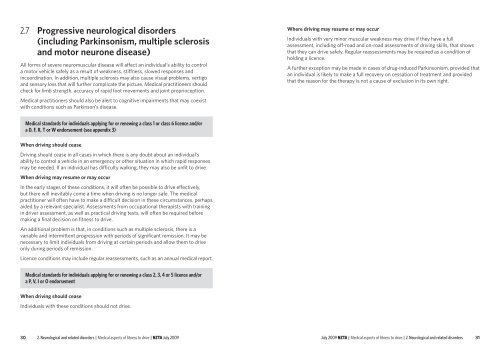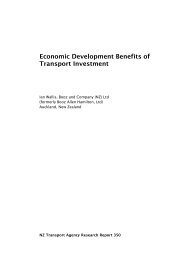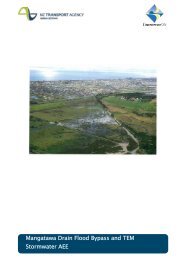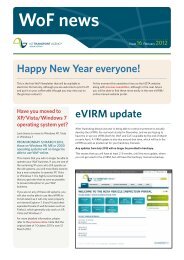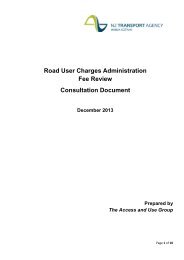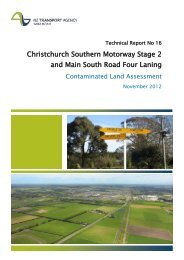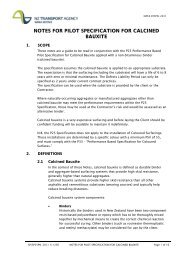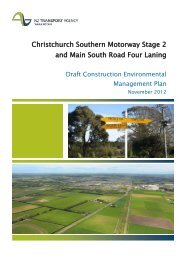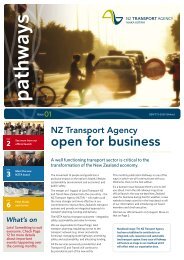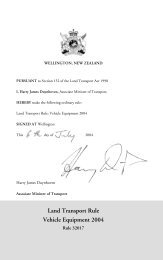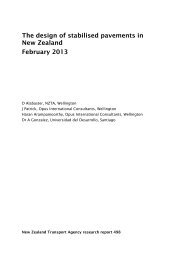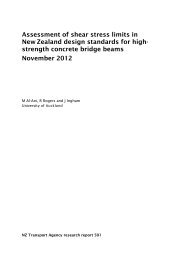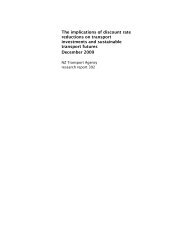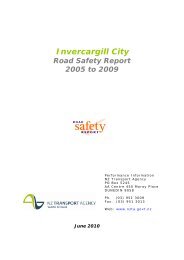Medical aspects of fitness to drive a guide for medical practitioners
Medical aspects of fitness to drive a guide for medical practitioners
Medical aspects of fitness to drive a guide for medical practitioners
Create successful ePaper yourself
Turn your PDF publications into a flip-book with our unique Google optimized e-Paper software.
2.7<br />
Progressive neurological disorders<br />
(including Parkinsonism, multiple sclerosis<br />
and mo<strong>to</strong>r neurone disease)<br />
All <strong>for</strong>ms <strong>of</strong> severe neuromuscular disease will affect an individual’s ability <strong>to</strong> control<br />
a mo<strong>to</strong>r vehicle safely as a result <strong>of</strong> weakness, stiffness, slowed responses and<br />
incoordination. In addition, multiple sclerosis may also cause visual problems, vertigo<br />
and sensory loss that will further complicate the picture. <strong>Medical</strong> <strong>practitioners</strong> should<br />
check <strong>for</strong> limb strength, accuracy <strong>of</strong> rapid foot movements and joint proprioception.<br />
<strong>Medical</strong> <strong>practitioners</strong> should also be alert <strong>to</strong> cognitive impairments that may coexist<br />
with conditions such as Parkinson’s disease.<br />
Where driving may resume or may occur<br />
Individuals with very minor muscular weakness may <strong>drive</strong> if they have a full<br />
assessment, including <strong>of</strong>f‐road and on‐road assessments <strong>of</strong> driving skills, that shows<br />
that they can <strong>drive</strong> safely. Regular reassessments may be required as a condition <strong>of</strong><br />
holding a licence.<br />
A further exception may be made in cases <strong>of</strong> drug‐induced Parkinsonism, provided that<br />
an individual is likely <strong>to</strong> make a full recovery on cessation <strong>of</strong> treatment and provided<br />
that the reason <strong>for</strong> the therapy is not a cause <strong>of</strong> exclusion in its own right.<br />
<strong>Medical</strong> standards <strong>for</strong> individuals applying <strong>for</strong> or renewing a class 1 or class 6 licence and/or<br />
a D, F, R, T or W endorsement (see appendix 3)<br />
When driving should cease<br />
Driving should cease in all cases in which there is any doubt about an individual’s<br />
ability <strong>to</strong> control a vehicle in an emergency or other situation in which rapid responses<br />
may be needed. If an individual has difficulty walking, they may also be unfit <strong>to</strong> <strong>drive</strong>.<br />
When driving may resume or may occur<br />
In the early stages <strong>of</strong> these conditions, it will <strong>of</strong>ten be possible <strong>to</strong> <strong>drive</strong> effectively,<br />
but there will inevitably come a time when driving is no longer safe. The <strong>medical</strong><br />
practitioner will <strong>of</strong>ten have <strong>to</strong> make a difficult decision in these circumstances, perhaps<br />
aided by a relevant specialist. Assessments from occupational therapists with training<br />
in <strong>drive</strong>r assessment, as well as practical driving tests, will <strong>of</strong>ten be required be<strong>for</strong>e<br />
making a final decision on <strong>fitness</strong> <strong>to</strong> <strong>drive</strong>.<br />
An additional problem is that, in conditions such as multiple sclerosis, there is a<br />
variable and intermittent progression with periods <strong>of</strong> significant remission. It may be<br />
necessary <strong>to</strong> limit individuals from driving at certain periods and allow them <strong>to</strong> <strong>drive</strong><br />
only during periods <strong>of</strong> remission.<br />
Licence conditions may include regular reassessments, such as an annual <strong>medical</strong> report.<br />
<strong>Medical</strong> standards <strong>for</strong> individuals applying <strong>for</strong> or renewing a class 2, 3, 4 or 5 licence and/or<br />
a P, V, I or O endorsement<br />
When driving should cease<br />
Individuals with these conditions should not <strong>drive</strong>.<br />
30 2. Neurological and related disorders | <strong>Medical</strong> <strong>aspects</strong> <strong>of</strong> <strong>fitness</strong> <strong>to</strong> <strong>drive</strong> | NZTA July 2009<br />
July 2009 NZTA | <strong>Medical</strong> <strong>aspects</strong> <strong>of</strong> <strong>fitness</strong> <strong>to</strong> <strong>drive</strong> | 2. Neurological and related disorders 31


